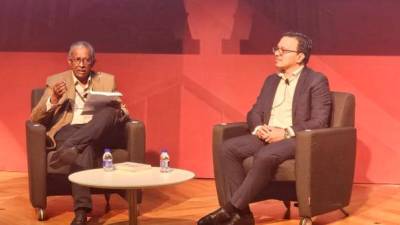KUALA LUMPUR: Cradle Fund Sdn Bhd is close to fully utilising the RM65 million allocation for startup development programmes this year, with more than 100 startups earmarked for approval under its flagship grant schemes, said group CEO Norman Vanhaecke.
Cradle is systematically disbursing the government funds in quarterly batches and expects full commitment of its RM65 million allocation by year-end.
“The allocation, which covers not only grants but also the Bengkel Inovasi GLC and other capacity-building programmes, is close to being fully utilised. We are very much in high gear to execute and deliver all those programmes before the end of the year,” he told SunBiz in an interview on the sidelines of MBAN Summit 2025 today.
The current cycle marks Cradle’s third batch of approvals this year, and Vanhaecke said the agency is “diligently going through every single application” to ensure funding goes to promising ventures.
“We expect more than 100 startups to be approved for grants this year alone and we expect more approvals tied to next year’s budget announcement,” he added.
Vanhaecke shared that Cradle receives about 600 applications annually, and every one of them goes through a rigorous process that takes one to two months, from pitching and due diligence to a final round of pitching.
He said the CIP Spark scheme accounts for the majority of approvals, reflecting Cradle’s focus on seeding early-stage ideas.
CIP Spark provides up to RM150,000 for prototyping and product validation to give startups the opportunity to test concepts and establish market fit before seeking larger funding rounds.
“The philosophy is to take an idea, bring it to market, and then build the runway for the next stage,” he said.
Once they gain traction, recipients have several pathways – tapping angel investors, securing private funding or moving up to Cradle’s CIP Sprint grant, which provides up to RM600,000 for more advanced, market-ready ventures.
Vanhaecke said this tiered approach helps startups build momentum without becoming over-dependent on grants. “It’s about ensuring that ideas don’t get stuck at the concept stage. With Spark, they get to prototype and validate. With Sprint, they get to scale.”
Vanhaecke highlighted artificial intelligence (AI) as one of the biggest drivers among local startups applying for government grants this year.
“AI has become one of the biggest drivers we see in a lot of startups this year. The accessibility of AI tools globally is giving Malaysian founders a competitive edge,” he said. “It actually puts us quite a bit ahead compared to other countries. We are seeing more AI startups here in Malaysia that are competitive with what’s happening internationally.”
He said the trend reflects a stronger pipeline of applications, with many startups now building solutions designed for regional and global markets rather than hyperlocal use cases.
Looking ahead, Cradle will cap off the year by hosting the Asean Startup Summit 2025 in Kuala Lumpur on Nov 3–5, after receiving a regional mandate to execute the Asean Startup Initiative.
“The three-day event will open with a showcase of Malaysian startups, followed by a second day dedicated to Asean-wide networking and collaboration, and a third day featuring a high-level conference with speakers from the region and beyond,” Vanhaecke said.
The summit will be officiated by Prime Minister Datuk Seri Anwar Ibrahim and the Asean secretary-general, underscoring the political weight behind the initiative.
“This summit reflects not only Cradle’s commitment but also the government of Malaysia and Asean’s recognition of startups as a key engine of the region’s innovation economy. It will bring together startups, investors, corporates, ecosystem builders and policymakers into Kuala Lumpur to immerse themselves in what Malaysia and Asean have to offer,” Vanhaecke said.
According to its official website, since its inception in 2003, Cradle has funded more than 1,000 startups, disbursed RM255 million in grants and programmes, and contributed an estimated RM1.83 billion to gross domestic product while helping generate about 80,000 jobs.
